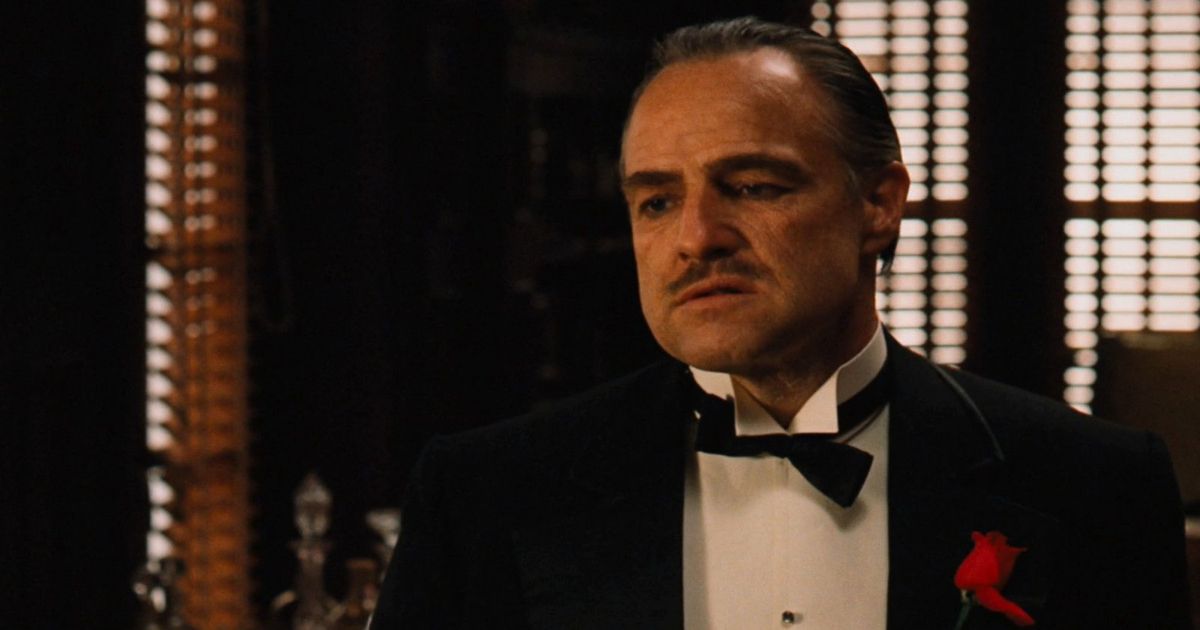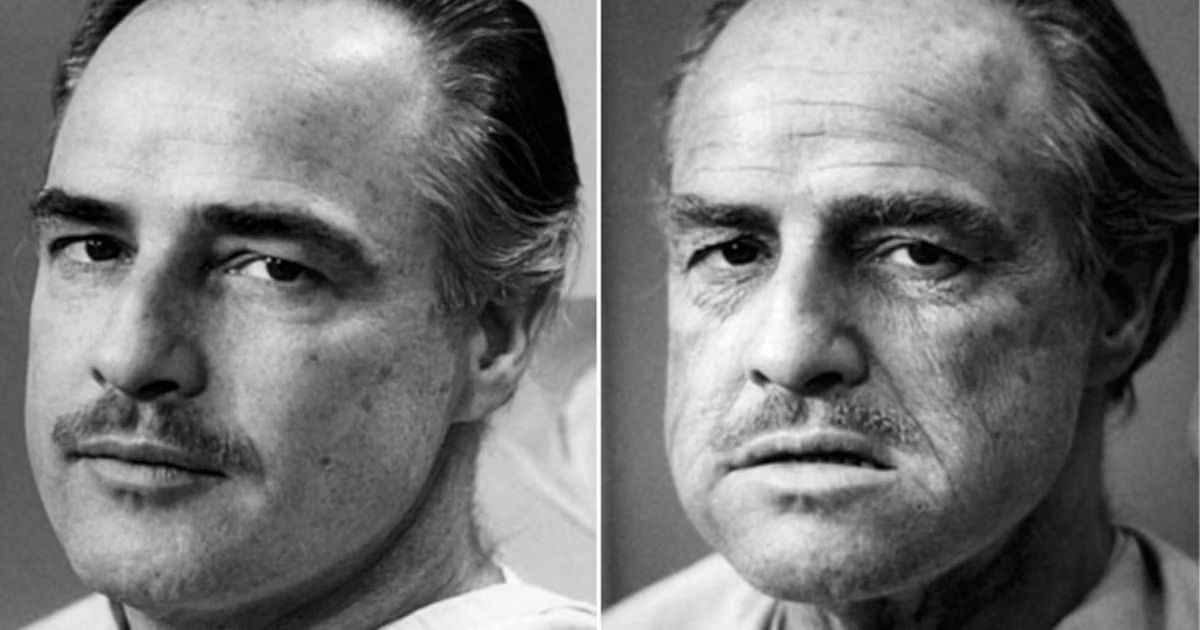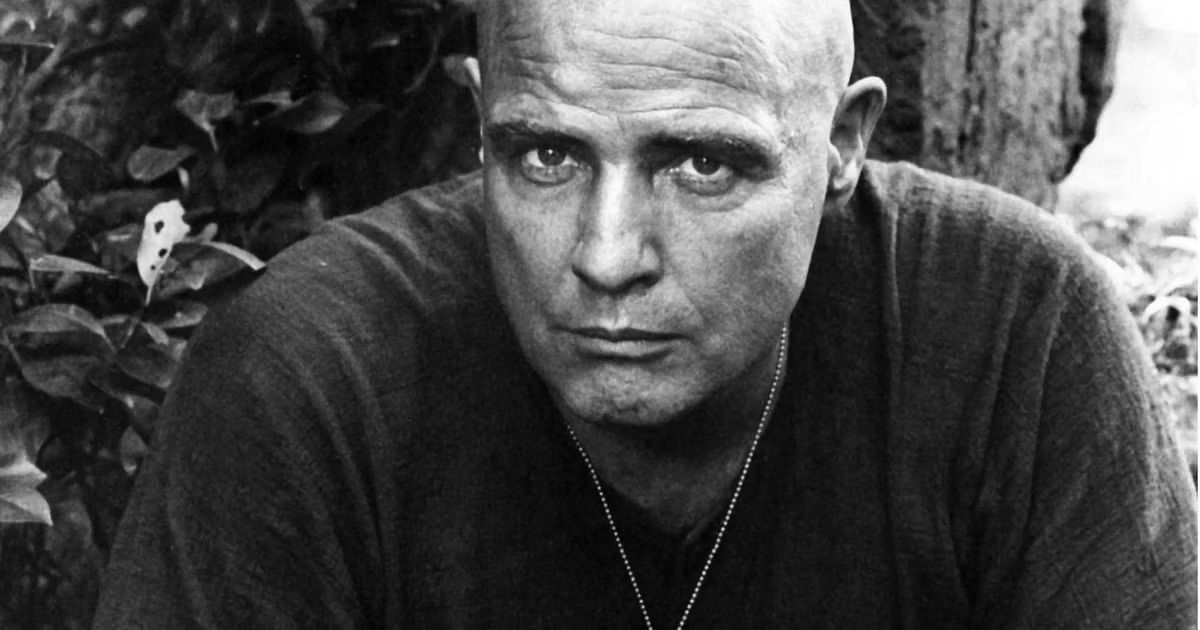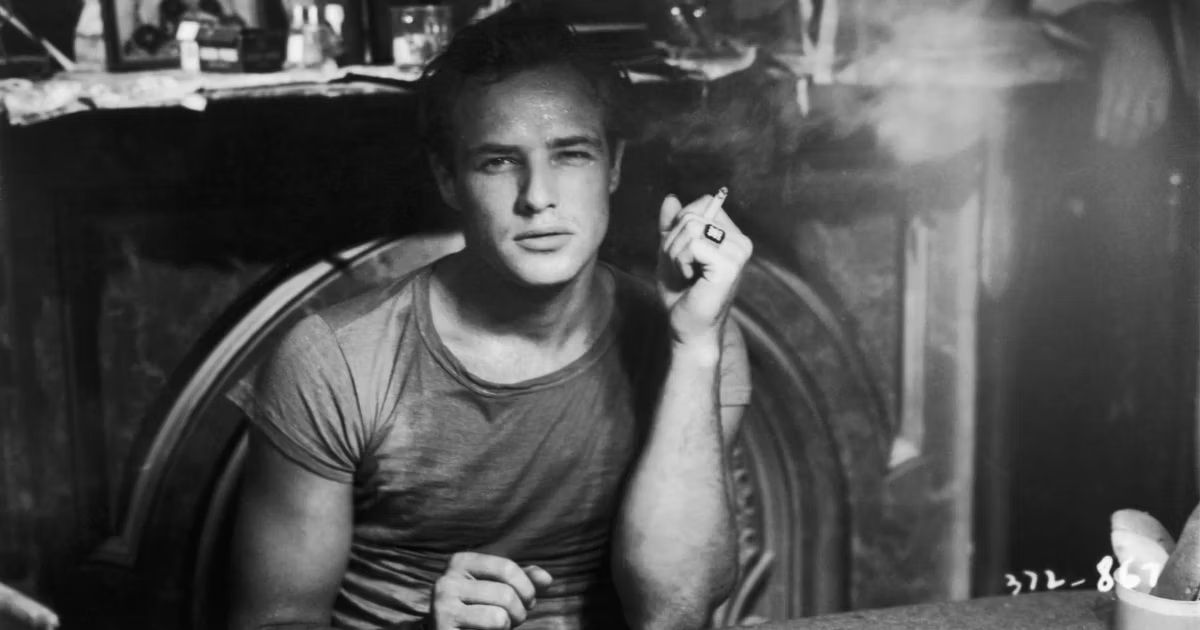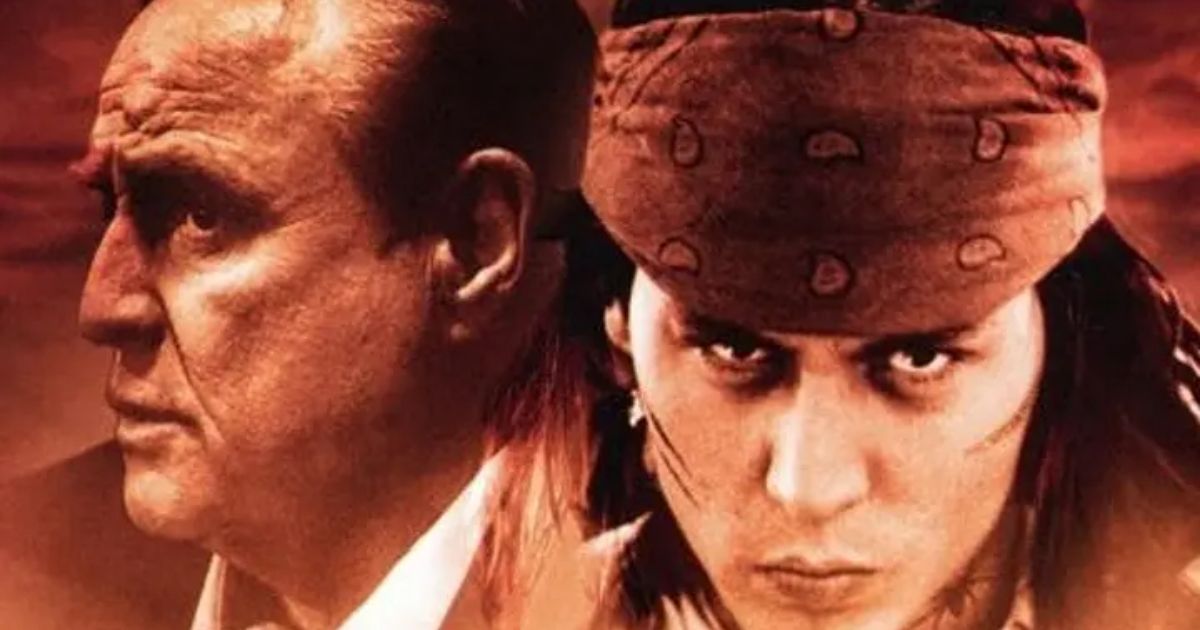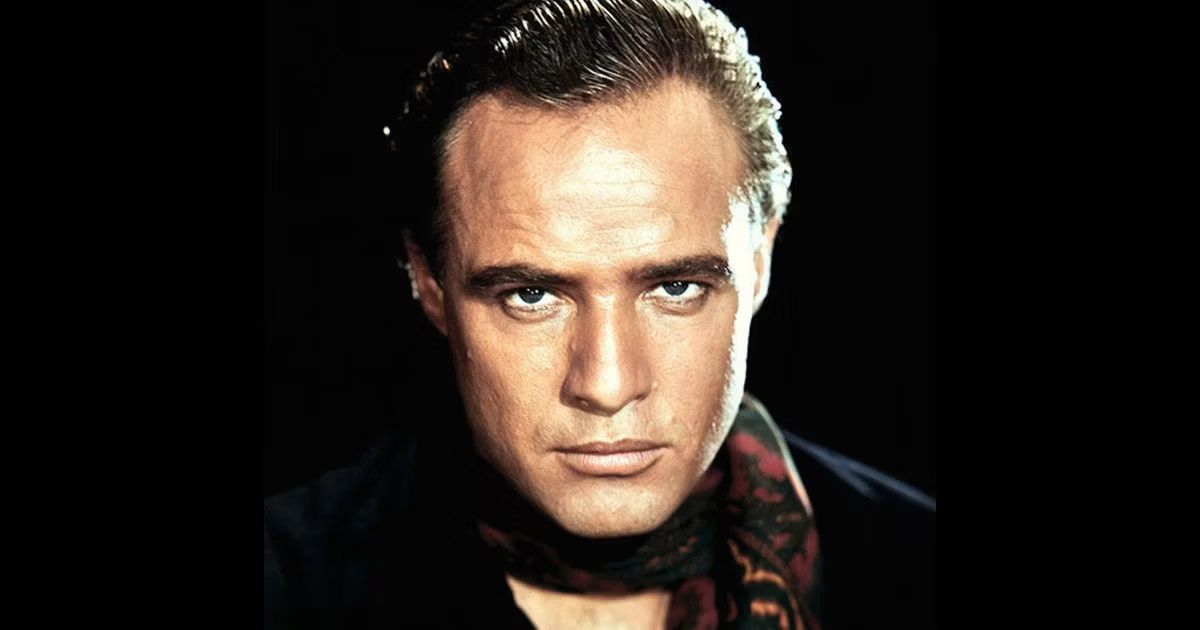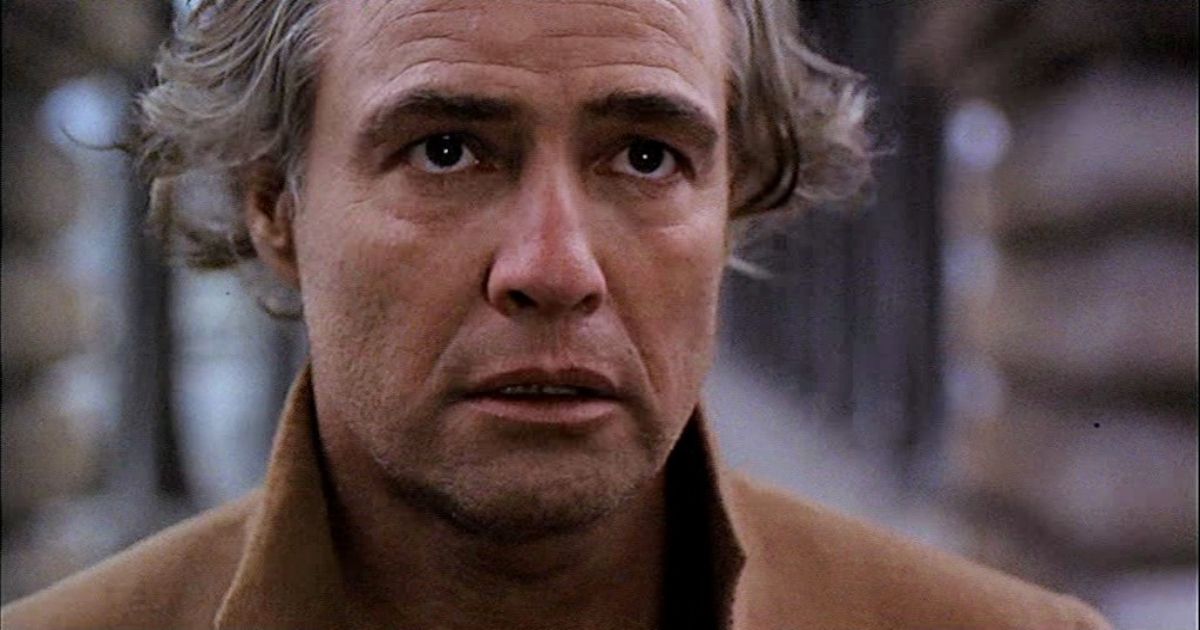Perhaps one of the most influential artists to have ever performed on a stage or screen, Marlon Brando appeared in nearly 50 motion pictures that have all earned some critical or social praise. Films like The Godfather, Apocalypse Now, On the Waterfront, A Streetcar Named Desire, and Last Tango in Paris are just a few of Brando’s career highlights. These films are powerhouses and have been nominated for numerous awards and earned substantial accolades. However, Brando’s charisma and dedication to these roles are why they continue to shine.
Brando is just one of the few actors that could control the entire film regardless if they are in a particular scene or not. There is something magical to his performances that draws viewers in and allows time to build before giving them everything he could give. This is just one of the many reasons why Brando is considered by many to be the greatest actor of all time. From being one of the first to ever be labeled a “method actor,” Brando brought a nuance to performing that no one had ever seen before.
Marlon Brando’s Method to the Madness
Method acting, as we now know today, is a much more theatrical and sometimes over the top version of what it was originated as. Audiences have heard stories of Heath Ledger's transformation into the Joker in the classic film The Dark Knight, or the great Daniel Day-Lewis bringing the role of Abraham Lincoln home with him for months on end. Brando did none of that. What Brando did do, however, was to go beyond the four walls and through the lens of the camera and think about the audience’s response to his performance.
In the documentary Listen to Me Marlon, clips from Brando were compiled along with voiceovers from the actor as he explained his process and passion for audience reactions:
“Never let the audience know how it’s gonna come out. Get them on your time. And when that time comes and everything is right, you just fly. Hit them, knock them over with an attitude, with a word, with a look. Be surprising, figure out a way to do it in a way that has never been done before. You want to stop that movement from the popcorn to the mouth. Get people to stop chewing. The truth will do that [...] when it’s right, it’s right. You can feel it in your bones. Then you feel whole and you feel good.”
The one thing that has separated Brando amongst a sea of others is his search for truth. The truth, as it pertains to Brando’s performance, is gathered from understanding how the audience should respond to a scene. It takes understanding human emotion, and understanding how the art of filmmaking and acting should connect with human emotion. Brando takes his time to build suspense and wait for that moment to make that connection through the camera and with the audience.
Searching, Not Looking
One of the more well-known pieces of trivia is that Brando would rarely memorize his lines for films and would have them placed on cue cards around the set. In his later films, he would have his lines fed to him via an earpiece. While some might think this is a lazy way to go about the process of filmmaking and acting, where some actors spend weeks at a time memorizing their lines, Brando’s reasoning is much more complex.
Being a performer for the audience, Brando is seen searching for the right thing to say in the moment. This is the truest it can be for the performance because in reality, he is actually searching for the thing he needs to say. Line delivery needs to be organic, and in natural conversation, there is no script nor an outline of conversation topics; actual people don't converse like fast-talking 1940s movie characters (or Aaron Sorkin characters, for that matter). Instead, the right thing just magically pops into your mind, and Brando was able to find a way to realize that on set. That time he spends waiting and searching around for that right line to deliver creates a more organic flow for the conversation. It never comes off as robotic or like someone is reading off of a teleprompter. It is real, honest, and natural and helps create that direct connection to the audience.
Brando did alter his appearance in many of his films, which is a staple of method acting in modern film. In Apocalypse Now, Brando shaved his head after reading the actual source material. However, he was much heavier than the character was originally written, according to director Francis Ford Coppola. In the revolutionary motion picture The Godfather, Brando’s screen test, according to Coppola, was Brando in his own home building the character from scratch. He walked around the house, putting tissues in his mouth to give the character of Vito a “bulldog” expression. He also put shoe polish in his blonde hair and slicked it back. He morphed into Don Vito before Coppola’s very eyes and the rest is history.
Brando’s Perception of Acting
Marlon Brando was never one to be interviewed to promote a picture in the traditional sense. He would use the opportunity to discuss topics that he felt were important. However, during a historic interview on the great Dick Cavett Show, Brando explains how acting as a profession is an essential factor to all of society:
“I think we couldn’t survive a second if we weren’t able to act. Acting is a survival mechanism, and it’s a social unguent, and it’s a lubricant. We act to save our lives actually every day. People lie, constantly, every day by not saying something that they think or saying something that they don’t think or showing something that they don’t feel.”
Saying that acting is a survival mechanism was in many ways ironic because actors are working and making money while acting. It is the way in which they survive financially and in some ways artistically. However, connecting it to societal functionality, in the way that Brando describes, means we all have the ability to act in a way we need to survive.
Brando’s Passion for Social Issues
Where Brando was more reserved in the promotion for his films and acting, he was an outspoken advocate for issues he was passionate about. Brando utilized his platform to address or even protest social issues that were prevalent at the time. One of the issues he was a prominent spokesperson of was the mistreatment of the Native American in motion pictures. He protested this by refusing to accept his Academy Award in 1973 for Best Actor in his role for The Godfather. Instead, he sent a Native American actress named Sacheen Littlefeather to accept the award and speak on behalf of the Indigenous community mistreated by modern society.
Another important historical issue Brando was passionate about was the civil rights movement. In 1968, Brando told Johnny Carson, as well as the entire world, that he turned down the chance to work with Elia Kazan in his newest film The Arrangement. Kazan directed Brando on films crucial to his career, A Streetcar Named Desire, Viva Zapata!, and On the Waterfront. Brando was nominated for all three films but received his Oscar for On the Waterfront. Brando declined the role in the newest Kazan picture because Martin Luther King had been shot. Brando wanted to allocate his time, energy, and money towards supporting King’s legacy and efforts; Kazan had also 'named names' to the House Committee on Un-American Activities during the McCarthyist witch hunt that blacklisted countless people from Hollywood.
Brando's Long-Lasting Impact on Film
Brando is cited by many performers as a source of inspiration. He has left a long-lasting impact on the motion picture industry that will never be forgotten. Al Pacino states his experience working with him while being interviewed by Larry King:
“You know, today when you tell young people about [On the Waterfront], the response isn’t quite the same about it. But you have to understand, this was in that period, a revelation. It was a breakthrough. His acting on screen was different than we’d all seen. So playing with him in [The Godfather] was… it was a little unnerving.
Another prominent Hollywood icon, Christopher Reeve, explains Brando’s generosity and warmth and the kindness that Barndo showed the young actor portraying Superman in Richard Donner’s classic comic book film, Superman: The Movie.
“[Brando] invited me over to his house for dinner and he had two pieces of advice. He said ‘First of all, this is your movie and take it.’ Which I think is damn nice coming from someone who got top billing. He also said, ‘Don’t kill yourself doing the stunts. Don’t be a hero.’ I said that’s a little strange. I just got hired to play a hero.”
Brando’s lack of enthusiasm for the role of Jor-El was noted by many. He spent most of his time in his trailer and according to an article by The Independent, Brando was only “lured out” with food. He was paid the highest salary, over $3.7 million for only 20 minutes of actual screen time. However, Brando delivered an incredible performance as the catalyst for the entire film.
Brando's Later Years and the Test of Time
People have complained about Brando's performances in the later years of his life, but the actor never stopped releasing great movies and outperforming everyone in them, from The Freshman and A Dry White Season to Don Juan DeMarco and Johnny Depp's film The Brave. His final film, The Score, remains one of the greatest crime dramas of the past few decades; his co-star, Edward Norton, told Joe Rogan:
There's this history of famous actors, and it sort of begins with Brando, because Brando had such an enormous effect on the psychology of men in America. If you look at what I'd call 'the great generation' of American actors (Dustin Hoffman, Robert De Niro, Robert Duvall, Gene Hackman, Al Pacino, Morgan Freeman, Meryl Streep), that's all the post-Brando generation. All of those people, literally all of them, wanted to become actors because of Marlon Brando. He rewrote the idea of what it was and what it could be.
Marlon Brando was and still is an enigma. He was mysterious, passionate, and brilliant on a variety of topics. Aside from the numerous rumors, trivia, and not so flattering stories, Brando changed the industry by sticking to one factor… the truth. He knew the truth in his performances meant establishing a relationship with the audience. There will never be an actor as influential and committed as Brando was. His films will stand the test of time and his performances will be taught and discussed to young aspiring performers forever.

